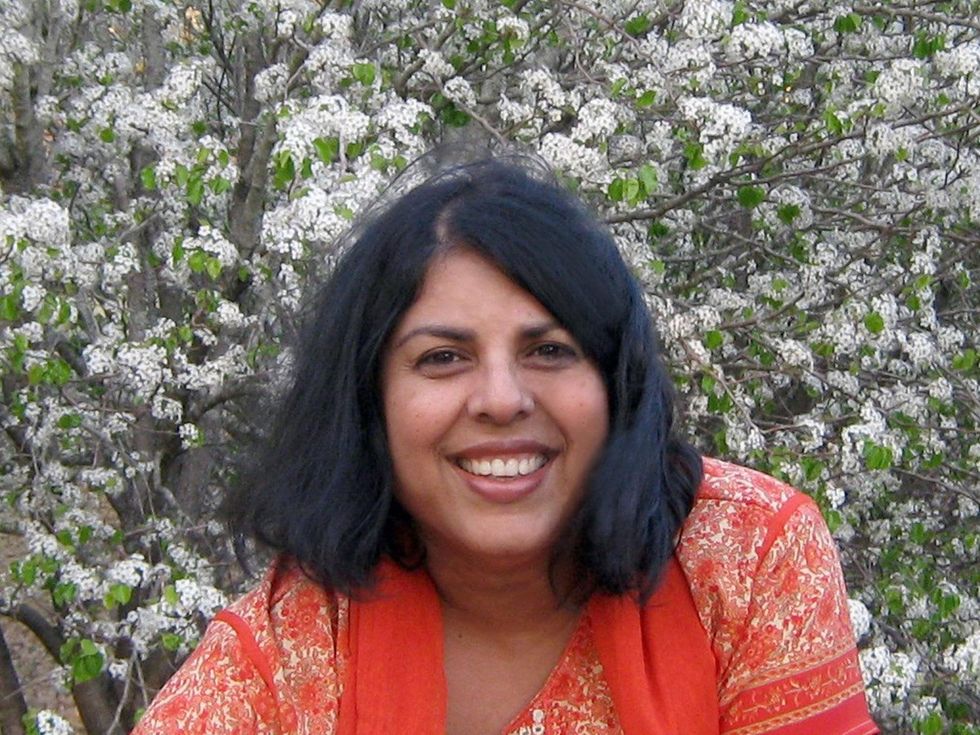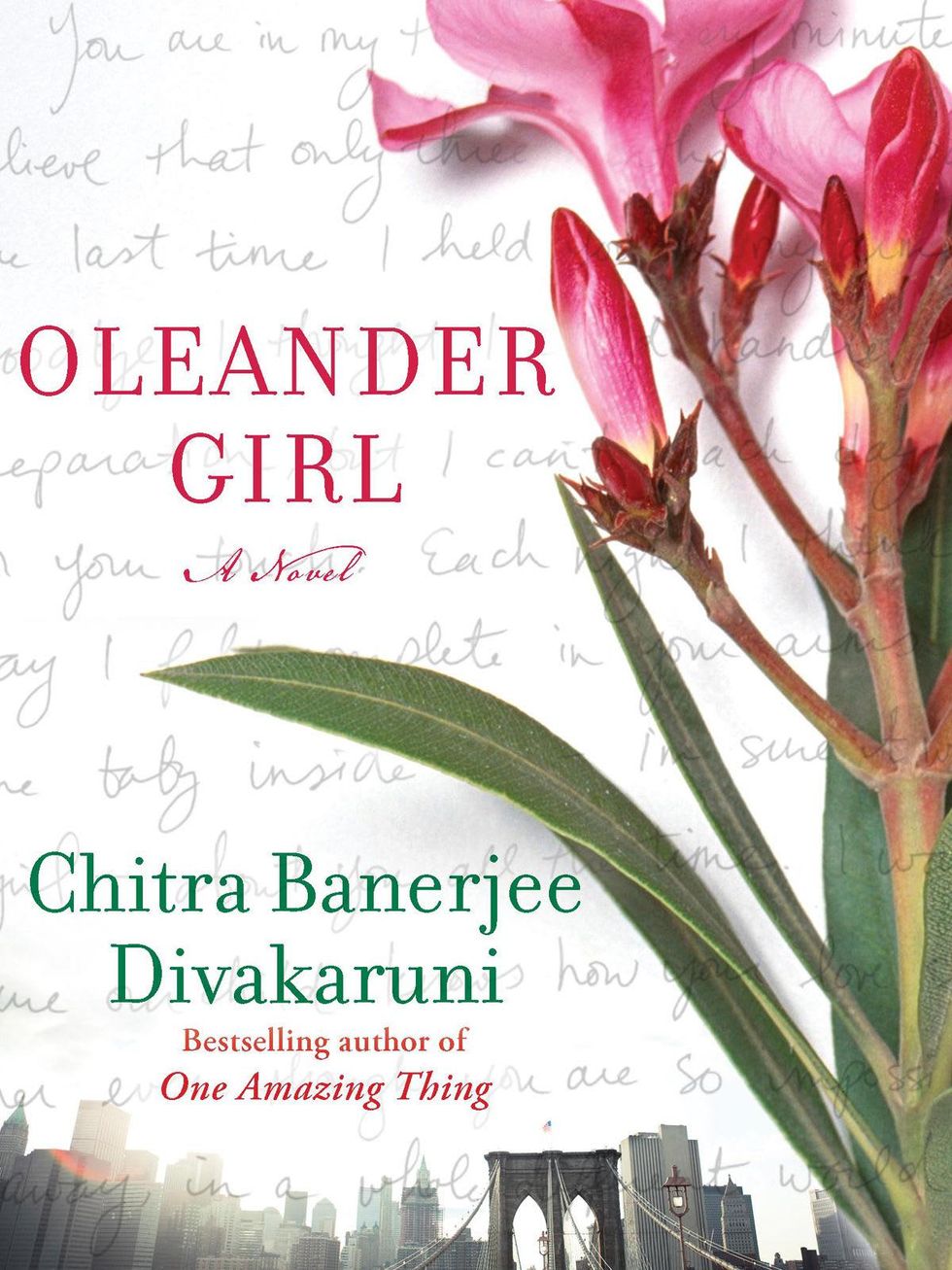Visiting Author
“A different kind of truth”: The facts and fictions of Emma Donoghue
“I've always had a very zigzag career,” says Emma Donoghue. “So I appreciate when anybody hangs in there for more than one book.”
While it is true that the award-winning author’s 15 books run the gamut from biography to historical novels to contemporary fiction, it’s hard to see how anyone could stop reading at just one. From the 18th century true-crime drama Slammerkin (Harcourt, $15) to the breathlessly suspenseful Room (Little, Brown, $7.99), a fable of mother love told from the perspective of a five-year-old that was shortlisted for the 2010 Man Booker Prize, Donoghue’s work shows astonishing breadth and scope.
Donoghue will appear at BookPeople this Sunday to read from her new collection of short stories, Astray (Little, Brown, $25.99).
Astray’s 14 stories, all based on or inspired by true historical episodes, follow a motley assortment of travelers and wanderers, immigrants and exiles on literal and figurative journeys from old worlds to new. Donoghue herself has emigrated twice, first to England for graduate school and then to Canada, where she lives now with her partner and two children.
“Being Irish I was raised to emigrate,” she says. “When I was growing up with my seven siblings ahead of me, I saw them all head off automatically, and although some came back, there just seemed a natural rhythm. Especially if you had aspirations to any decent kind of job, you were planning to head off into the world, like migrating birds. Ireland is just too small an island to stay home.”
The migratory humans in her latest collection tend to go "astray" in more than one sense: a Victorian widow supporting her family with a little daytime prostitution, a sexually frustrated Puritan who accuses fellow colonists of wild indecencies, a pair of gold miners in the Klondike who enjoy what a contemporary reader might call a “brokeback” winter. (The protagonist who transgresses the least? An elephant.)
The thrill of reading the collection comes not only from learning quirky bits of history — did you know about the 1876 plot to steal Lincoln’s corpse? We didn’t! — but also from the themes of cultural and sexual hybridity that it illuminates.
“I think it just makes absolute sense that when you’re writing about characters who are not just traveling for fun, but going on serious life-changing journeys, it's going to mess with them morally speaking as well," Donoghue says. "People have always had their sense of what was allowed shaken up by travel.”
Since this is Donoghue’s first trip to Austin, we’ll see what she draws from her experience here — a newfound appreciation for tattoo sleeves and be-thonged bicyclists, perhaps? Sometimes, as Austinites well know, the truth is weirder than fiction.
“It’s funny with fiction and history,” says Emma Donoghue. “History is a really rich source of fiction, but you're never looking for the most representative substantial typical person of the day. You’re always looking for the oddities, because they illustrate a different kind of truth.”
Donoghue spoke to CultureMap about the troubled relationship between truth and fiction, why Irish history is boring, and how to tell when a dead person is lying.
---
CultureMap: Half a dozen of your novels are based on historical characters, and even Room is based on a story ripped from the headlines.
Emma Donoghue: Clearly I have an impoverished imagination! I can't seem to get by without these little nuggets to get me started.
CM: Why is that, do you think?
ED: I don't think I'm a natural at plotting. I think I'm really good at imagining up characters, and I think my natural talent is the dialogue. But I'm not somebody who just naturally rolls out of bed in the morning with great plots in her head. So I find history a particularly useful source, because not only do substantial and dramatic things happen, but they also have that edge of oddity to them.
One example would be my novel The Sealed Letter, about a Victorian divorce case. If I was just making up a Victorian divorce story, which of course I could do, I would probably have gone for one that was relatively clean in its lines. One husband, one wife, and maybe she would have one affair. But the woman I was writing about in the real case, the Covington trial, she was carrying on simultaneously, and in an overlapping way, with two of her husband’s military colleagues!
I would never have made that up, that would have just seemed preposterous. So I love that edge, that sort of rough edge that history has, that hasn't been smoothened down. There are all those details that you just can't quite believe, and yet they ring true because they're genuinely odd.
CM: But your PhD isn't in history?
ED: No, it's not. You know, I was turned off history with a capital “H” by the fact that I was growing up in Ireland. The Irish high school curriculum, the history they taught was the minutiae of Irish doomed revolutions. We’ve got a lot of tiny doomed revolutions — microscopic! — you know, it’ll be like six guys in a field, with three pikes between them. We concentrated entirely on that, and on British parliamentary politics. So I found history really pretty boring.
What I liked was what I now realize is called social history. My mother used to take me to graveyards and stately homes, and I loved that. But I just didn't think of that as official “history.” So I studied English, which I loved, too, of course. But now I realize that really I'm a natural historian, but it just didn't really occur to me to do it at university, because I thought it would be more of those damn Irish revolutions. The “national question” has just this terribly dominant hold on our minds.
CM: You became a literary historian, though.
ED: It’s true in a way. But when I'm writing my fiction, I feel terribly, terribly grateful to the scholars that I'm drawing on. Because every time I write a thing set in, say, the 18th century, I'm drawing on 20 different books about roads in the 18th century, currency in the 18th century, clothes in the 18th century. Somebody else has done a lot of that hard primary research.
I think often reviewers overestimate the extent to which I have dug up these cases. Very often other people have dug them up and all I am doing is turning them into fiction. . . It’s a very different kind of work doing primary history, it's very slow and painful. But deeply satisfying, too.
I did a slim biography of a pair of Victorian poets, Katherine Bradley and Edith Cooper, who wrote as "Michael Field." So I read every word of their diaries in the British Library, and that was deeply satisfying. And you know, it was a very small publication, it was never going to make me famous, but just the satisfaction of seeing them get their first really comprehensive modern biography was really enjoyable work.
CM: What kept you from writing a novel about that? What made them a better subject for a biography than a novel?
ED: Because the source was wonderfully thorough. And so any novel about them would have been effectively just taking that source and putting a skin of fiction on it. They wrote so eloquently about themselves, it would have felt a bit like cheating! The source was full enough that actually all that it needed was a very straightforward approach where I mostly let them speak for themselves, and I just quoted all the best bits.
Whereas the stories in Astray, these are the kind of people who, well, Jumbo [the elephant] has had a couple of biographies written of him, but most of the people in the book are too odd or obscure, or we don't know enough about them, that you're never going to be able to do a biography. I think fiction is enormously good at reaching into those little crevices that history as such is not going to be able to get to.
CM: Do you feel a fidelity to these historical characters, to really tell the truth about them?
ED: You know, it's not that I feel I have to stick to every detail that's in the sources, because luckily — well, luckily from my point of view! — sources contradict each other. They’re often full of lies. Like the court case I used in my novel The Sealed Letter, I mean nobody in that court case was remotely credible. You can just smell the lies.
One advantage to having done a lot of historical reading is that I think you do develop a good ear for lies. You know, like you can tell when the language gets more conventional, you can tell that now what you're hearing is somebody's sort of, you know, souped-up theme that they're making up. And other passages really ring true.
So sources, I don’t feel obliged to always stick to exactly what they say. But I do feel obliged to say at the back which things I've made up and which things I've changed. I do like to be very transparent about my process, because I have a historian side as well as a fiction writer side, I don't want to muddle the two. I can in a way combine the two in my historical fiction, but I wouldn't want to pretend that my fictional versions are the gospel truth either. I think especially as I’m writing about such obscure people often, I feel obliged to let people have the facts as much as we can find them, so that my short story won't be the only version I'm offering.
I think it's up to me to resurrect these people, and then let the readers go off and find more about them and write their own version. I don't feel that I own these cases.
---
Emma Donoghue will appear at BookPeople on Sunday, Nov. 11 at 4 p.m. For an extended version of this interview, please see the Amy Gentry's blog, The Oeditrix.


